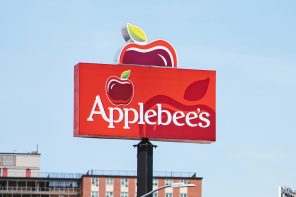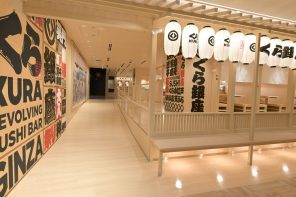Earlier this month, New York-based VCR Group launched a new experiment in the ever-evolving world of blockchain technology and cryptocurrency.
The group, which is led by serial entrepreneur Gary Vaynerchuk, began selling membership to a private dining club in New York City as a non-fungible token, or NFT. The new concept, called Flyfish Club, isn’t scheduled to open until 2023. But the membership/NFT was offered using the cryptocurrency Ethereum with tokens being bought, sold, or even leased on the secondary market Opensea.io.
Following a small pre-sale in December, 1,151 memberships were made available on Jan. 7 and they sold out in less than a minute, raising an initial $14 million (including the earlier batch). And it’s a gift that keeps on giving back to VCR Group, which earns royalties as the memberships are traded.
It’s a new innovation in fundraising that could be a game changer — though questions remain about the journey ahead for VCR Group. Among the founding partners is veteran restaurant operator David Rodolitz who argues that the NFT project’s goal is not only to build an exclusive and attractive restaurant experience, but also to build a community of like-minded members who will engage with the brand as it comes to fruition.
So, what is Flyfish Club?
It’s going to be a seafood-focused restaurant with globally influenced cuisine. Flyfish token holders will have access to the main part of the restaurant - the cocktail bar, dining room and outdoor space – and then there’s a Flyfish omakase token that will give the additional access to a private omakase room, which will be for very limited token holders.
It’s a 10,000-square-foot dining club, the restaurant will be one part of it. There will be a pretty robust cocktail bar, outdoor space, private dining and the omakase room.
“We hope it would be a place people would frequent multiple times a week, more of a members community focused around food and beverage, wrapped in cryptocurrency,” described Rodolitz.
The group has built a business model around membership alone, leveraging media and technology to find new ways of creating financial models around the food-and-beverage industry.
“We love food and beverage, however, it’s a very difficult business model. The industry is very challenging, whether that has to do with increased rents; whether it has to do with minimum wage and labour costs, it’s just very challenging, margin is very low,” continued Rodolitz.
“So, relying on EBITDA (earnings before interest, taxes, depreciation, and amortisation) — which as operators, we’ve been relying on for a very long time — we’re not interested in anymore. There’s only so much you can charge a consumer and it gets to the point that the model is not a sustainable one.”
Rodolitz noted that the project does not have a reoccurring fee each year, so it’s not like an other members club.
“Through NFTs and the blockchain you’re able to authenticate that you’re the owner of something. And because it’s so scarce and limited and we’re creating community around it, there’s a lot more demand for the supply.”
Of course, many are asking, what happens if you make an investment in this membership and the restaurant never opens?
“You’re betting on the people and people should do their homework,” advised Rodolitz.
“People could invest in any project that we do and if there’s no guarantee of getting your money back what are you investing in? It’s about the operators and team. Believing in the people through their track record, through their reputation. This is about innovation and creativity and trying to change the landscape.”
This could be seen as a new version of Kickstarter, a new way to raise money to open a restaurant and Rodolitz said tat a lot of copycats will jump into it and try to follow what Flyfish Club has done, some will be successful and some won’t.
“And that’ll be determined by who they are, what their plans are, their intent, how they execute. We spent a tremendous amount of time on each piece from artwork to design to location — all of these pieces came together to create something that visually looks beautiful and is exciting.”
With the actual restaurant not set to open until early 2023, the team have developed a list of a year of events — physical and digital — everywhere from New York to Miami to Minneapolis to the Hamptons and virtual events that will provide a lot of utility.
“I would argue that the events themselves are worth more than the price of tokens,” said Rodolitz.
“We don’t want this to feel transactional. We just want to do really awesome stuff through event programming, through the restaurant and dining club,” he concluded.
“It’s about building a community and staying engaged.”






